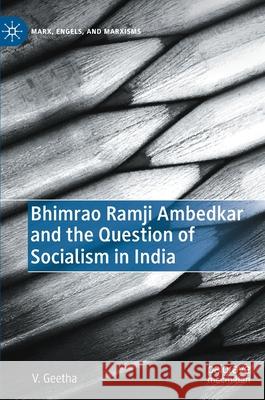Bhimrao Ramji Ambedkar and the Question of Socialism in India » książka
topmenu
Bhimrao Ramji Ambedkar and the Question of Socialism in India
ISBN-13: 9783030803742 / Angielski / Twarda / 2021 / 364 str.
Kategorie BISAC:
Wydawca:
Palgrave MacMillan
Seria wydawnicza:
Język:
Angielski
ISBN-13:
9783030803742
Rok wydania:
2021
Wydanie:
2022
Numer serii:
000766862
Ilość stron:
364
Waga:
0.62 kg
Wymiary:
21.01 x 14.81 x 2.39
Oprawa:
Twarda
Wolumenów:
01
Dodatkowe informacje:
Wydanie ilustrowane











